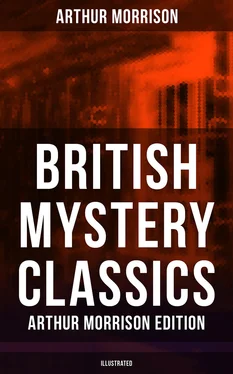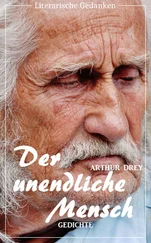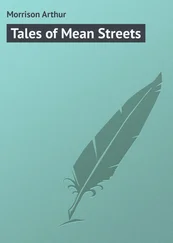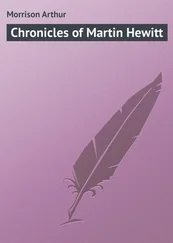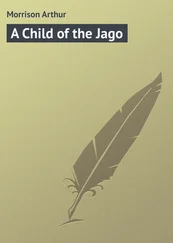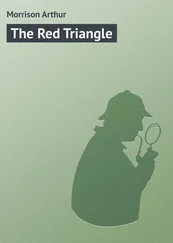“You went on to prevent any setting to rights at Chelsea, and I made enquiries as to Challitt. I found he had been released only a few days before all this trouble arose, and I also found the name of another man who was released from the same establishment only a few days earlier. I knew this man (Gillard) well, and knew that nobody was a more likely rascal for such a crime as that at Finchley. On my way to Chelsea I called at my office, gave my clerk certain instructions, and looked up my scrap-book. I found the newspaper account of the chloroform business, and also a photograph of Gillard — I keep as many of these things as I can collect. What I did at Chelsea you know. I saw that one panel was of old wood and the rest new. I saw the hole in the old panel, and I asked one or two questions. The case was complete.”
We proceeded with our dinner. Presently I said: “It all rests with the police now, of course?”
“Of course. I should think it very probable that Challitt and Gillard will be caught. Gillard, at any rate, is pretty well known. It will be rather hard on the surviving Kingscote, after engaging me, to have his dead brother’s diamond transactions publicly exposed as a result, won’t it? But it can’t be helped. Fiat justitia, of course.”
“How will the police feel over this?” I asked. “You’ve rather cut them out, eh?”
“Oh, the police are all right. They had not the information I had, you see; they knew nothing of the panel business. If Mrs Lamb had gone to Scotland Yard instead of to the policeman on the beat, perhaps I should never have been sent for.”
The same quality that caused Martin Hewitt to rank as mere “common-sense” his extraordinary power of almost instinctive deduction, kept his respect for the abilities of the police at perhaps a higher level than some might have considered justified.
We sat some little while over our dessert, talking as we sat, when there occurred one of those curious conjunctions of circumstances that we notice again and again in ordinary life, and forget as often, unless the importance of the occasion fixes the matter in the memory. A young man had entered the dining-room, and had taken his seat at a corner table near the back window. He had been sitting there for some little time before I particularly observed him. At last he happened to turn his thin, pale face in my direction, and our eyes met. It was Challitt — the man we had been talking of!
I sprang to my feet in some excitement.
“That’s the man!” I cried. “Challitt!”
Hewitt rose at my words, and at first attempted to pull me back. Challitt, in guilty terror, saw that we were between him and the door, and turning, leaped upon the sill of the open window, and dropped out. There was a fearful crash of broken glass below, and everybody rushed to the window.
Hewitt drew me through the door, and we ran downstairs. “Pity you let out like that,” he said, as he went. “If you’d kept quiet we could have sent out for the police with no trouble. Never mind — can’t help it.”
Below, Challitt was lying in a broken heap in the midst of a crowd of waiters. He had crashed through a thick glass skylight and fallen, back downward, across the back of a lounge. He was taken away on a stretcher unconscious, and, in fact, died in a week in hospital from injuries to the spine.
During his periods of consciousness he made a detailed statement, bearing out the conclusions of Martin Hewitt with the most surprising exactness, down to the smallest particulars. He and Gillard had parted immediately after the crime, judging it safer not to be seen together. He had, he affirmed, endured agonies of fear and remorse in the few days since the fatal night at Finchley, and had even once or twice thought of giving himself up. When I so excitedly pointed him out, he knew at once that the game was up, and took the one desperate chance of escape that offered. But to the end he persistently denied that he had himself committed the murder, or had even thought of it till he saw it accomplished. That had been wholly the work of Gillard, who, listening at the window and perceiving the drift of the conversation, suddenly beat down Kingscote from behind with a life-preserver.
And so Harvey Challitt ended his life at the age of twenty-six.
Gillard was never taken. He doubtless left the country, and has probably since that time become “known to the police” under another name abroad. Perhaps he has even been hanged, and if he has been, there was no miscarriage of justice, no matter what the charge against him may have been.
The Nicobar Bullion Case.
Table of Contents
The whole voyage was an unpleasant one, and Captain Mackrie, of the Anglo–Malay Company’s steamship Nicobar, had at last some excuse for the ill-temper that had made him notorious and unpopular in the company’s marine staff. Although the fourth and fifth mates in the seclusion of their berth ventured deeper in their search for motives, and opined that the “old man “ had made a deal less out of this voyage than usual; the company having lately taken to providing its own stores; so that “makings” were gone clean and “cumshaw” (which means commission in the trading lingo of the China seas) had shrunk small indeed. In confirmation they adduced the uncommonly long face of the steward (the only man in the ship satisfied with the skipper), whom the new regulations hit with the same blow. But indeed the steward’s dolor might well be credited to the short passenger list, and the unpromising aspect of the few passengers in the eyes of a man accustomed to gauge one’s tip-yielding capacity a month in advance. For the steward it was altogether the wrong time of year, the wrong sort of voyage, and certainly the wrong sort of passengers. So that doubtless the confidential talk of the fourth and fifth officers was mere youthful scandal. At any rate, the captain had prospect of a good deal in private trade home, for he had been taking curiosities and Japanese oddments aboard (plainly for sale in London) in a way that a third steward would have been ashamed of, and which, for a captain, was a scandal and an ignominy; and he had taken pains to insure well for the lot. These things the fourth and fifth mates often spoke of, and more than once made a winking allusion to, in the presence of the third mate and the chief engineer, who laughed and winked too, and sometimes said as much to the second mate, who winked without laughing; for of such is the tittle-tattle of shipboard.
The Nicobar was bound home with few passengers, as I have said, a small general cargo, and gold bullion to the value of £200,000 — the bullion to be landed at Plymouth, as usual. The presence of this bullion was a source of much conspicuous worry on the part of the second officer, who had charge of the bullion-room. For this was his first voyage on his promotion from third officer, and the charge of £200,000 worth of gold bars was a thing he had not been accustomed to. The placid first officer pointed out to him that this wasn’t the first shipment of bullion the world had ever known, by a long way, nor the largest. Also that every usual precaution was taken, and the keys were in the captain’s cabin; so that he might reasonably be as easy in his mind as the few thousand other second officers who had had charge of hatches and special cargo since the world began. But this did not comfort Brasyer. He fidgeted about when off watch, considering and puzzling out the various means by which the bullion-room might be got at, and fidgeted more when on watch, lest somebody might be at that moment putting into practice the ingenious dodges he had thought of. And he didn’t keep his fears and speculations to himself. He bothered the first officer with them, and when the first officer escaped he explained the whole thing at length to the third officer.
Читать дальше
